
Dan Bock
It's OK to just run your games through the engine
Game analysis is good for your chess. But it comes at a cost.Everyone knows what you’re supposed to do after a serious classical game of chess. Analyze with your opponent if they’re willing, and then write down your analysis. Do it immediately after the game, while your memory is still fresh. Write down your thoughts about every move, with extra focus on critical moments and turning points. Include detailed variations you calculated, and write about your thought process in finding those variations. Include any psychological factors, feelings, and emotions. The process should take approximately the same amount of time as the game itself. After all that, optionally check your work with an engine.
This really is the best way to do it. I’ll return to this, but first, let me tell you about ALTO.
I’ve written about ALTO before. It’s more than just a chess tournament for adults only. The sixth iteration just concluded, and it has become a significant social event that adult chess players from around the United States mark on their calendars. One recent ALTO had 119 players from 19 states. Between rounds of the splendidly well-run five-round tournament, we hang out in the hotel lobby, at the bar, at nearby restaurants, or on the group run, chatting about chess (and other topics, I guess), analyzing, and playing blitz. I’ve rarely felt more among my people than I have at ALTO.
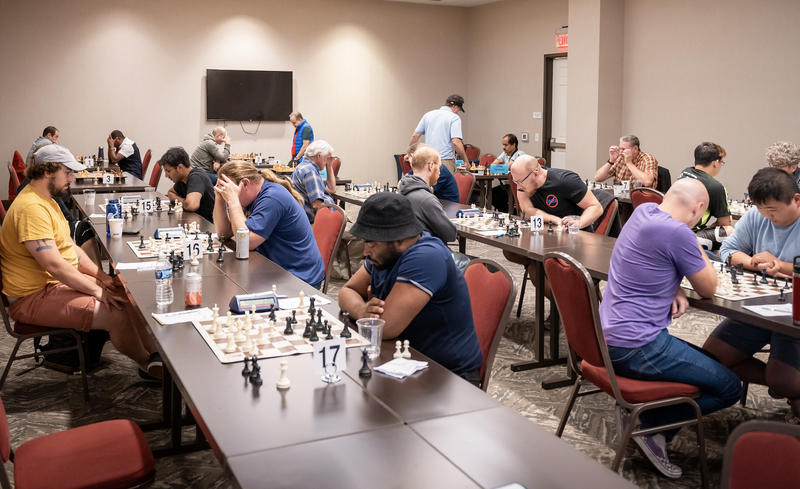
Fall 2023 ALTO. Photo by Charlotte Chess Center
So. When a round at ALTO is over, do I rush up to my room to spend the next three hours by myself, writing down game analysis? I do not. I analyze with my opponent if they’re willing and if a table is available1, and then I put my scoresheet in a safe place and I relax and dine and drink with friends.
Will you stay motivated to improve at chess if it feels like all work and no play? Chess is optional. People quit all the time. Improving at chess can be a very rewarding hobby, if you stick to it. You’re more likely to stick to it if you have friends texting you to ask if they’ll see you at the next tournament. And the place you’re most likely to make those friends is at a tournament, between rounds... if you’re not holed up in your hotel room writing down your game analysis.
Is game analysis good for your chess? Yes, but that’s the wrong question. The right question is whether the time you spend on game analysis would be better spent on something else. Even if you’re not at the best social event for adult chess players in the country, time you spend on game analysis is time you don’t spend doing something else, like sleeping or otherwise giving your brain a break. There are benefits to game analysis, but there are opportunity costs that are significant.
Here’s the balance I’ve struck. When I get a chance, usually after I get home, I enter my games into a Lichess study. If I remember any variations I calculated during the game — and that’s less likely than if I did it immediately after the game — I put those in the study. And then I run the engine analysis. For any position where the engine has insights that I feel like I understand and want to remember, I create an Anki flashcard. The whole process for each game usually takes less than 15 minutes.
I hear the advice about how to exhaustively analyze your games and I worry about perfectionism. If I believed that a game analysis had to take three hours in order to be useful, I might have good intentions about doing it, but I’d be all too likely to end up not getting around to it, and doing nothing at all. So I just run my games through the engine. And I think that’s significantly better than doing nothing.
It’s a compromise. But it’s one I’m happy with.
You may also like
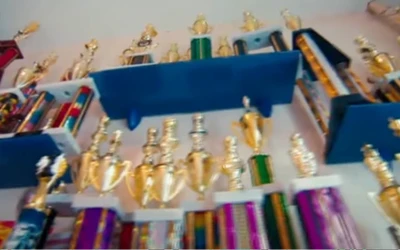 FM CheckRaiseMate
FM CheckRaiseMate15+10 Is All You Need
The simplest plan for chess improvement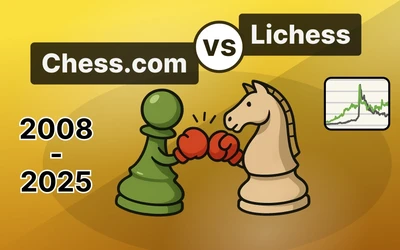 ChessMonitor_Stats
ChessMonitor_StatsWhere do Grandmasters play Chess? - Lichess vs. Chess.com
This is the first large-scale analysis of Grandmaster activity across Chess.com and Lichess from 200…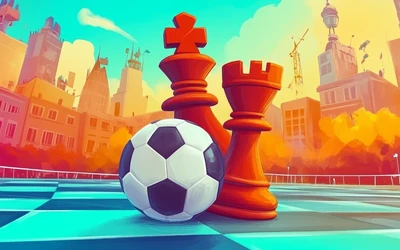 FM MathiCasa
FM MathiCasaChess Football: A Fun and Creative Variant
Where chess pieces become "players" and the traditional chessboard turns into a soccer field danbock
danbockMe, on Perpetual Chess
Episode 383, available now FM CheckRaiseMate
FM CheckRaiseMateThe 4 Lichess Studies I Make For Every Student
A setup to streamline your chess study routine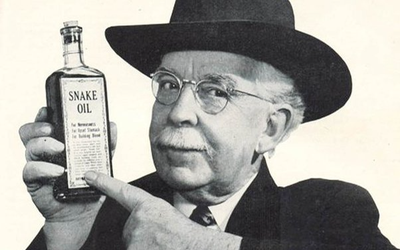 CM HGabor
CM HGabor